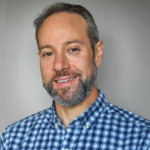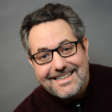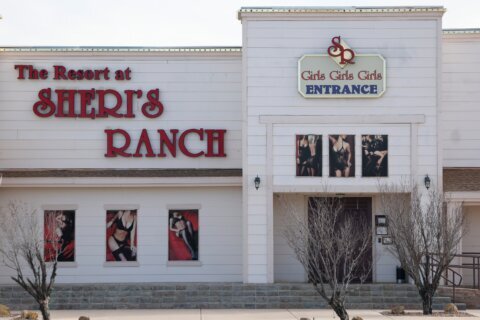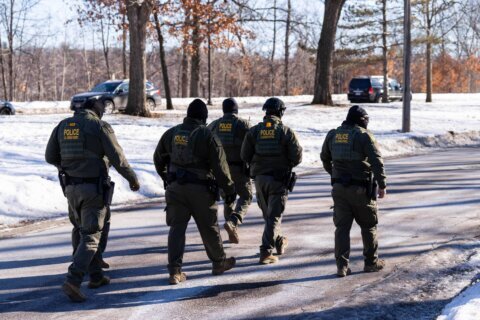WTOP’s Dimitri Sotis spoke with Lorenzo M. Boyd, Ph.D. from the Henry C. Lee College of Criminal Justice and Forensic Sciences at the University of New Haven. Boyd is the Assistant Provost for Diversity and Inclusion and the Director of the College’s Center for Advanced Policing.
Sotis began his conversation by asking Boyd about Friday’s news that prosecutors in Minnesota charged Derek Chauvin with third-degree murder and second-degree manslaughter in the death of George Floyd.
Sotis: Did it take too long for the charges to be filed?
Boyd: They need to take a little more time and be a little more precise, because if you rush to judgment, you’ll bring a weaker case, and it will increase the likelihood that you will not get a conviction.
The fact that they’re taking a little bit longer with this, I was OK with that. We’re talking a week, it’s not like they took a month.
Sotis: At the same time, as far as what was happening on the streets in Minneapolis and Saint Paul, the people didn’t see it that way. I don’t know if they were waiting for an arrest, but they were waiting for something to suggest that we’re on the path to justice here.
Boyd: I think the thing that changed it from a protest to a riot were the words of the district attorney. When he did his press conference, he said he wasn’t sure that he saw enough to bring criminal charges. That was the beginning of things spinning out of control.
Sotis: What do you think of the arson at the 3rd Precinct? An actual police station going up in flames.
Boyd: Well the sinister tone is not that this one day, there were fires. The sinister tone was the death of Floyd, the death of Castile, the death of Michael Brown, the death of Freddy Gray, the death of Sandra Bland.
I can go on and on and on. And part of the problem is a lot of people in the community are facing what we like to call ‘vicarious trauma.’ It seems like pretty regularly, they turn on their TV or open their social media and they see the death of another person of color at the hands of the police, and it’s starting to get overwhelming.
And people are frustrated, and people have made complaints over and over again and it seems like the complaints are falling on deaf ears. And when the police officer gets 18, 19 complaints, and he’s still on the street, that’s problematic.
And the problem is that there’s not a level of oversight, a level of accountability, and people are kind of being victimized with no accountability for the people that are doing it.
Sotis: It was 53 years ago that Martin Luther King, Jr. explained a riot is the language of the unheard.
Boyd: Absolutely. And I often talk about what happened in Baltimore, because I’ve spent time in Baltimore. At the riots. I was in Ferguson for the tail end of that, and people have been making these complaints for years. For generations. And it’s not been heard.
And in Baltimore, no one really cared until after CVS burned down. And the world started to watch in Minneapolis when the 3rd Precinct started to burn to the ground. A lot of the folks feel like they have no other recourse.
They voted and they’ve protested peacefully, they’ve marched and they’ve written letters and made complaints, and things haven’t changed. The question that I’ve asked is “what other recourse is there?” Because it appears that when they kneel peacefully, people are upset about it, when they protest loudly, people are upset about it. When they do nothing, they lose their lives. So a lot of the people figure, this is all we have left.
And as a sociologist, my job is not to excuse this behavior, my job is to help explain it so that people understand what’s going on when protests turn into riots.
When you look at who the problem is thought to be, the problem, if the problem is in fact the police, doesn’t it make sense that would be the target? Not the AutoZone, not the TJ Maxx, not the Walmart.
If the police are the problem, intellectually, isn’t it understood that that’s where they would go?
Sotis: What about the auto part stores burned and other things?
Boyd: And part of the problem is that we do ask rational questions to illogical behavior. And when people ask why would you burn down buildings in your own community.
Well, these aren’t buildings where they have any stake. They don’t have stock in these buildings. These aren’t businesses that they run.
And if you notice on the CNN feed as they were scanning some of the businesses, businesses that were boarded up had written across the front “minority owned.” Those were the buildings that were spared, so there does seem like there’s some level of logic in it, but to get rid of an auto-parts store or a business that’s charging us higher prices because they live in a food desert — convenience stores that will charge them twice as much for a gallon of milk — a lot of these businesses are not seen as friendly businesses.
And they’re not businesses that are employing them. But the flip side of this is that there are just a lot of bad characters out there that are just going on mob mentality and letting off pure adrenaline, and just breaking down things because they can.
Sotis: I’m not talking now about Minnesota, but I’m talking about our race relations as country. Is there anything you can put your finger on that looks like progress? Let me throw this up for discussion: White guys like me acknowledging our privilege. That seems to be new to me. I don’t know if that’s going to lead to something better, but that seems to be a start.
Boyd: Absolutely. Just having people admit to their level of privilege is a start.
The other thing is that white people need to be allies to people of color and speak out. Because admittedly, there are people that will say things in a room with you in it that they clearly wouldn’t dream of saying with me in the room.
So for you to stand up and say “those things are wrong,” outside of my earshot, is definitely a help.
The problem becomes when people who see themselves as allies stand in silence. And silence looks a whole lot like complacency and like they’re being complicit.
Sotis: What else would you like to say about the situation and where we might go for here? For me to ask you how we fix this, while it’s a good question, it’s not like we can snap our fingers and fix.
Boyd: Part of the problem is that this is not a new problem.
We can go back 400 years to see the negative relationship between law enforcement and people of color. We can go back to slave patrols. So there’s been negative relations from the very beginning between people enforcing whatever type of law it was and people that are being enforced.
So even if we go back one generation — we are one generation removed from the Civil Rights struggle — and the grandparents of the people protesting were of the age of the people marching in the 60s for the right to vote. And what happened? All they wanted was the right that the Constitution gives them and the police set dogs on them, and the fire department would put hoses on them, and the police would beat them down for peaceful protests.
These kids are hearing a lot of these stories, and because it’s been going on for generations, there’s no reason to think that it’s going to change quickly.
One of the things that I do, I do a lot of police training. And we don’t just start with the police. We spend time with high school and college-age people and we try to give them skills that help make them better people.
We try to teach them levels of empathy. We try to teach them critical thinking. We teach them how to communicate. We’re trying to build a better person that’s going into policing and hopefully some of the dinosaurs that are in policing will retire and move out, and the younger people will be more progressive and help try to make a change.
And we’re also starting to see a lot more people of color going into policing even though they’re facing racism and their own struggle. At least they’re on the inside trying to make a change.
I’m not saying we can’t change things. But it didn’t get this way over the last 10 or 20 years, so it doesn’t make sense that we’re going to change in that length of time.
I’m not anti-police at all. But I am anti-bad police. And I think society should be anti-bad police.
An elderly woman said to me “you keep saying there are a lot of good cops out there,” and I said “that’s correct.” She said “Where are all the good cops while all these bad cops are doing all these bad things?”
And that’s the question.
If the good cops are there and standing in silence, aren’t they complicit in the bad stuff as well? So we can fix it, but it’s going to take a lot of time and a lot of energy. And a lot of bridge building between the police and communities of color.
Sotis: We start to pay attention when the precinct is burning or the store is burning, but what can we do to pay attention way before that?
Boyd: Citizen oversight in policing might help. There’s a lot of people that have made complaints to the police but the problem is the internal affairs division of a police department investigates its own, and that’s inherently flawed. … If I may borrow a term from Johnnie Cochran. Who polices the police?
As citizens we police the police in the things that we do. And the bad part is that we have a lot of rhetoric, coming from the top, coming from the White House, that’s a lot of race-baiting, that’s exacerbating the problem.
So if we can get people in our leadership that are trying to be bridge-builders, hopefully that will trickle down as well.









